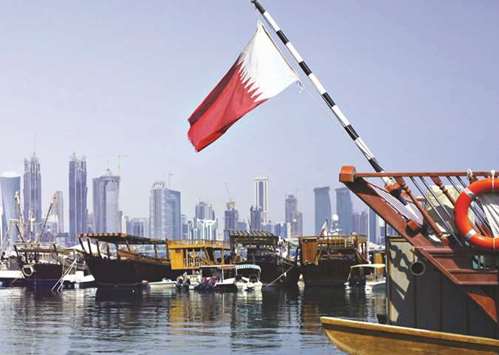Qatar’s economy has managed to weather the diplomatic and trade boycott by four Arab nations thanks to a solid financial buffer and sound macroeconomic policies, the International Monetary Fund has said.
“Growth performance remains resilient,” the IMF said in a May 30 report, nearly a full year after the sanctions went into effect. “The direct economic and financial impact of the diplomatic rift between Qatar and some countries in the region has been manageable.”
On June 5 last year, Saudi Arabia, the UAE, Bahrain and Egypt severed diplomatic and transport links with Qatar. Mediation efforts by Kuwait and others have failed to resolve the dispute.
This year, Qatar’s economy is expected to grow 2.6%. That’s up from 2.1% in 2017, when it was weighed down by cost-cutting and a self-imposed moratorium on new projects in the North Oil Field, the IMF said.
Now, Qatar needs to “entrench fiscal consolidation, maintain financial stability and deepen structural reforms to facilitate private-sector led growth and job creation,” it said.
Qatar’s inflation is set to peak at 3.9% in 2018 as the country plans to impose a value-added tax in the second half of 2018. Fiscal deficit is estimated to have narrowed to about 6% of GDP in 2017 versus 9.2% in 2016, the IMF said. Qatar’s public debt remains sustainable, estimated at 54% of GDP at end of 2017.

Qatar’s economy is expected to grow 2.6% in 2018, up from 2.1% in 2017, according to the IMF
